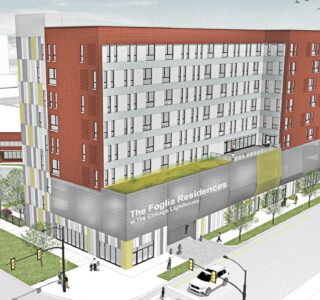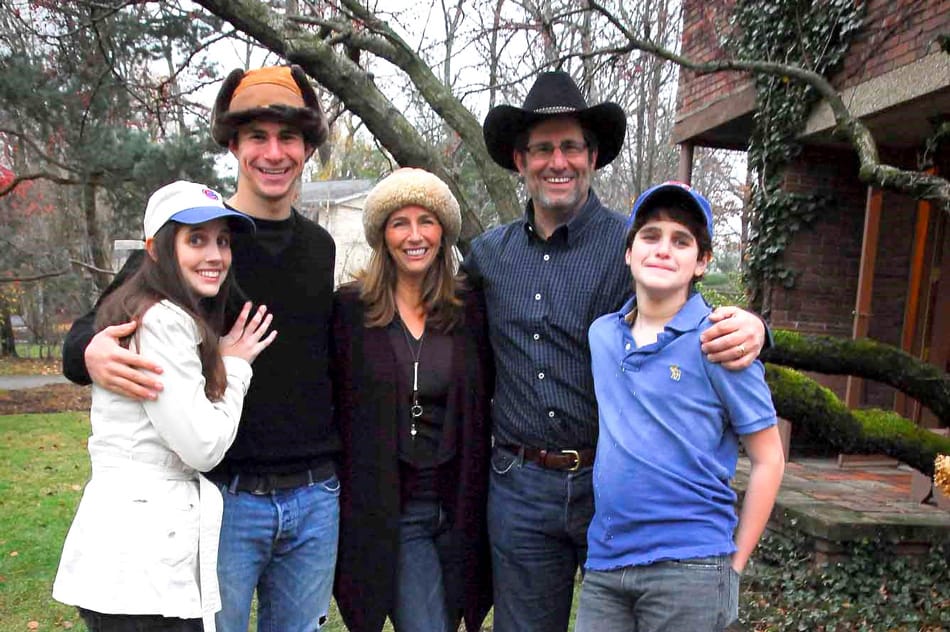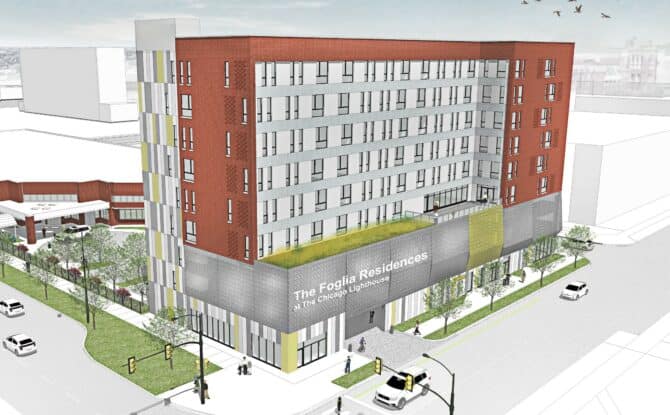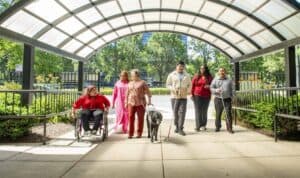
Building Our Community
As a co-founder and principal of Brinshore Development, David
Brint has helped build more than 7,500 housing units in 15 states
throughout the U.S., including several dozen affordable housing
developments in the Chicago area. The firm’s latest venture,
however, is more than another job. It’s a cause close to his and
his family’s heart.
The Brint family has been deeply involved with The Chicago Lighthouse ever since the birth of son Alan (at right), who is blind due to Leber congenital amaurosis.
David’s youngest son, Alan, has been blind since birth. Through Alan’s participation in The Lighthouse’s Birth-to-Three Early Intervention Program, the entire Brint extended family came to know our life-changing work. Alan’s mother, Betsy, and aunt, Sally Schwartz, have served for more than 20 years on our Associate Board, a group of philanthropic-minded North Shore residents supporting Lighthouse North in Glenview. (Sally is currently its President.) David’s nearly 10 years of service on The Chicago Lighthouse Board, as well as his work serving as Board Chairman for Foundation Fighting Blindness, helped him understand the barriers many members of the blind community face as they try to live independently. About four years ago, Brint began formulating a plan, in collaboration with Dr. Szlyk, to create affordable, accessible housing for people with visual disabilities.
They envisioned a multi-unit, mixed-income building created to address the challenges people who are blind or visually impaired often face. The units would include amenities and fixtures such as advanced assistive technology designed especially for people with low vision.
That vision drew one step closer to reality this spring when Chicago’s Department of Housing preliminarily approved a package of tax credits that will help pave the way for construction of a new 76-unit building adjacent to The Chicago Lighthouse.
Architectural firm Landon Bone and Baker is currently creating the building’s design, which will also include a ground-level retail complex that will provide job opportunities for people who are blind or visually impaired. Once the design and budget are completed, the permitting process will begin. If all goes smoothly, groundbreaking could begin as early as next spring. “People with visual impairments often struggle to find independent living opportunities in safe neighborhoods near their work,” David says. “This is a perfect opportunity to satisfy all of those challenges and support Chicago’s efforts to be a more accessible, inclusive city.”



